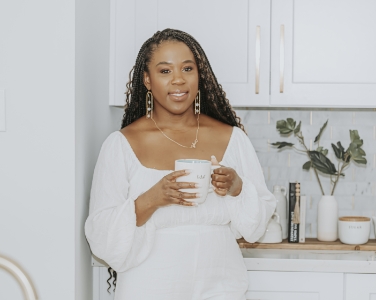
Introduction
For this post, I wanted to take a less clinical approach and have a safe and honest heart-to-heart conversation. Far too often, I have witnessed Black men being neglected in terms of their mental health needs. This has compelled me to openly and honestly address these disparities and remind Black men that it is absolutely okay to seek help.
While mental health care is important and affects individuals of all races, genders, and religions, it is crucial to acknowledge and recognize the unique challenges that Black men face when it comes to accessing treatment.
Mental Health Stigma in Black Communities
It is disheartening that the stigma surrounding mental illness in the Black community often prevents Black men from getting the support they need.
Research conducted by Verywell Mind confirms this unfortunate reality, with them stating:
Individuals in the Black community may be more likely to believe that since they’ve survived so much adversity, they’re strong-and no one has a right to tell them that there is something wrong with them (since they may view a mental health issue as weakness).
On the contrary, this couldn’t be further from the truth! I’m here to tell you that reaching out for support with your mental health does not mean you’re weak or broken-it means you are smart enough to recognize when something is wrong and brave enough to seek help when you need it.
Affirmations for Black Men
With that being said, let’s take a moment to affirm the mental health journey of Black men. Your well-being is not only important to me but also to your family, friends, allies, and many other members of your community! Here is a series of positive affirmations that aim to reinforce your belief in the importance of prioritizing your well-being.
- First and foremost, I want you to know that you are worthy of happiness, health, and healing. You deserve love, respect, and support. It’s easy to forget this in a society that often places unrealistic expectations on Black men. However, I want to remind you that you have the right to prioritize your well-being and that taking care of your mental health isn’t selfish-it’s necessary.
- Self-care is essential for your well-being. It’s not a luxury but a vital aspect of maintaining balance and resilience. Embrace activities that bring you joy and peace, whether it’s spending time in nature, engaging in hobbies, or simply taking a moment to breathe and relax. Remember, self-care looks different for everyone, so find something healthy that works best for you and make it a priority!
- Setting boundaries is crucial to protecting your mental health. It’s okay to say no when you need to, and it’s okay to distance yourself from toxic relationships or environments. Prioritize your emotional well-being by creating boundaries that honor your needs and values, and don’t be afraid to communicate your boundaries to others; true allies will respect them and you.
- You are not alone in your struggles. Seeking support is a sign of strength, not weakness. Therapy for Black men can be a powerful tool for navigating the complexities of life. By engaging in therapy, you create a safe space to explore your thoughts, emotions, and experiences without judgment. Seeking therapy from a culturally competent therapist who understands Black men can also provide the guidance and support needed to overcome challenges and promote a sense of balance and fulfillment.
- Celebrate your victories, no matter how small. Your wins deserve to be seen and celebrated. Take pride in your achievements. Cultivating a mindset of self-appreciation and gratitude can contribute to your overall well-being and self-worth and make a huge difference in your life.
Resources for Black Men to Support Their Mental Health Journey
Questions to ask to make sure you’re seeing a culturally competent therapist
If it’s your first time going to therapy, make sure you’re seeing someone who is culturally competent and understands your experiences. To further aid with this, here are some questions you can ask to make sure your therapist is ready to make you feel seen and heard.
- How familiar are you with the experiences and challenges faced by Black men in today’s society?
- What specific training or education have you received to enhance your cultural competence when working with Black men?
- How do you incorporate cultural sensitivity and awareness into your therapy practice with Black men?
- Can you provide examples of how you have successfully supported Black men in their mental health journeys?
- How do you approach intersectionality and acknowledge the unique experiences of Black men in relation to their race, gender, and other aspects of their identity?
Recommended reading to support Black men with their mental health
Lastly, I want to leave you with a couple of books to support you on your mental health journey.
- “We Real Cool: Black Men and Masculinity” by bell hooks – The book provides an analysis of how Black masculinity is formed and the effects it has on the mental health and general well-being of Black men. It addresses subjects such as identity, ways of self-expression, and the societal expectations that Black men may encounter in life.
- “Black Men and Depression: Saving Our Lives, Healing Our Families and Friends” by John Head – This book provides a deep examination of depression in Black men, addressing the cultural, historical, and social factors that contribute to mental health challenges. It offers strategies for healing, providing support, and promoting overall well-being.
Consider buying from a black-owned bookstore. Brown Sugar Cafe & Books is one of my favorites in the Houston area.
In conclusion
Your mental health journey is unique, and it’s okay to have setbacks and challenges along the way. Remember, don’t be afraid to embrace the power of therapy and self-care as essential components of your well-being.
If you find yourself needing additional support on your journey, feel free to contact me to schedule a consultation. As a culturally competent therapist based in Houston, I am committed to helping you develop strategies to overcome obstacles and to remind you that you don’t have to face it alone.
Lastly, remember to be kind to yourself, always. You are worthy of happiness, health, and healing.







